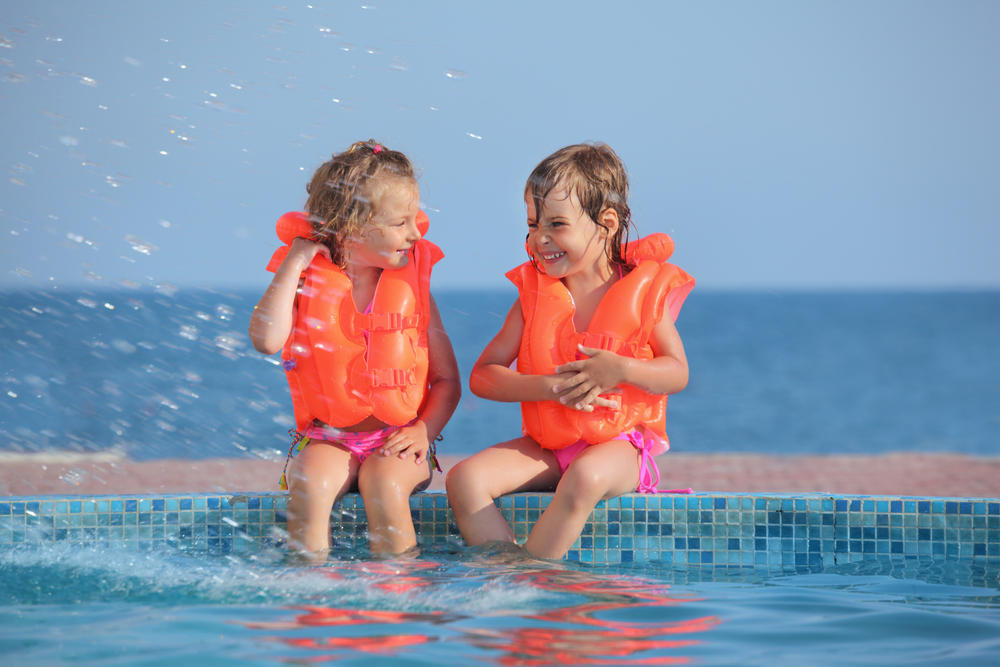Pool Safety: 90 Child Drownings Leads to a Call for Safety

New information released today by the U.S. Consumer Product Safety Commission's (CPSC) Pool Safely: Simple Steps Save Lives campaign, shows that 90 children younger than 15 were reported to have drowned in swimming pools since Memorial Day.
According to media reports, an additional 106 children of that age required emergency response for near-drowning incidents. These incidents provide a sobering reminder of how a fun day at the pool can quickly turn tragic.
The figures show that young children and toddlers are especially vulnerable to drowning because 72 percent of the children reported to have drowned since Memorial Day were younger than 5 years old.
In light of this information, the campaign is encouraging water parks, municipal swimming pools and other indoor and outdoor aquatic facilities to celebrate Pool Safely Day, an annual event promoting water safety that encourages all Americans to pool safely every day. Participants from all around the U.S. will be participating in Pool Safely Day activities during the week of July 22-29, 2012. More than 70 facilities in 30 states have registered events with CPSC during that week. Events will range from free swimming lessons, to CPR training, to distributing Pool Safely information materials to parents and caregivers.
"Making sure their children learn how to swim is one of the most important steps parents can take," said CPSC Chairman Inez Tenenbaum. "Swimming is a fun activity to help keep cool in the summer and it also can be a lifesaver."
Texas had the highest number of drownings (13) in this time period with California, New York, North Carolina, Ohio and Pennsylvania each reporting five drownings. CPSC's latest submersion report (pdf) shows on average 390 pool or spa-related drownings occur each year for children younger than 15, based on statistics from 2007-2009. About 5,200 pool or spa-related emergency department-treated submersion injuries occur on average each year for children younger than 15.
"This information tells a heartbreaking story," said Chairman Tenenbaum. "Behind each one of these incidents are grieving family members and communities. These are preventable tragedies, so we must continue to share the simple safety steps that parents and caregivers should take both before and during time spent in or near the water. That's what we mean when we say America needs to learn how to pool safely."
Sign up for the Live Science daily newsletter now
Get the world’s most fascinating discoveries delivered straight to your inbox.
The Pool Safely campaign provides information on the simple steps that parents, caregivers and pool owners can take to ensure that children and adults stay safe around pools and spas:
- Stay close, be alert and watch children in and around the pool. This means never leave children unattended in a pool or spa; always watch children closely around all bodies of water; teach children basic water safety tips; and keep children away from pool drains, pipes and other openings.
- Learn and practice water safety skills. This means every family member should know how to swim and learning to perform CPR on children and adults.
- Have appropriate equipment for your pool or spa. This include fencing, a lockable safety cover, proper drain covers to avoid entrapments, and lifesaving equipment such as life rings and a reaching pole.
The Pool Safely campaign was launched in 2010 to raise awareness about pool and spa safety, as mandated by the Virginia Graeme Baker Pool and Spa Safety Act. This year, the campaign is increasing its focus on populations most at risk of drowning, including children younger than 5 years old who represent 75 percent of child drowning fatalities on average, and African American and Hispanic children between the ages of 5 and 14 who drown at higher rates than white children, according to the Centers for Disease Control and Prevention. Data from USA Swimming indicates that 70 percent of African American children and 62 percent of Hispanic children cannot swim, making them especially vulnerable to drowning.
About Pool Safely: The Pool Safely campaign is CPSC's national public education and information program to reduce child drownings, near-drowning and entrapment incidents in swimming pools and spas. The campaign resulted from the requirements of Section 1407 of the Virginia Graeme Baker Pool and Spa Safety Act (P&SS Act), federal legislation signed into law in 2007, which mandated new requirements for pool and spa safety. Parents, caregivers, and the media are encouraged to visit PoolSafely.gov or @PoolSafely on Twitter for vital safety information regarding the prevention of child submersions in and around pools and spas.










